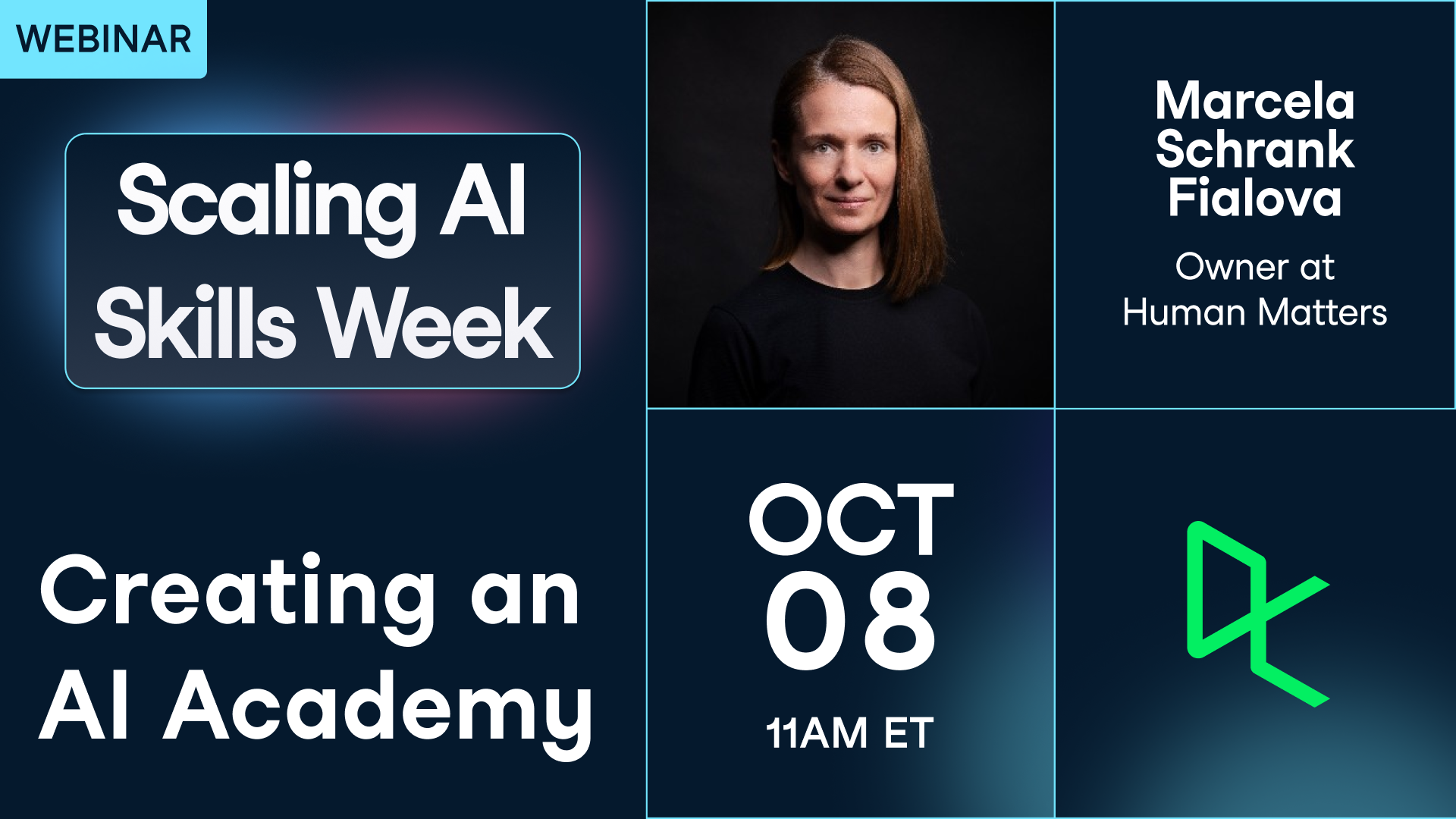Verwandt
webinar
A Framework For Creating a Data Academy
Marcela Schrank Fialova, the Founder and Executive Coach at Human Matters, will guide you through a comprehensive framework for creating a data academy.webinar
Building Tomorrow's Workforce, Today: Scaling Internal AI Academies
Explore the critical steps to creating a successful AI upskilling program within your organization and find out best practices for building internal AI academies, from curriculum development to engagement strategies and measuring impact.webinar
Scaling Data & AI Literacy with a Persona-Driven Framework
In this session, three experts walk you through the steps of creating a successful data training program.webinar
Scaling Data & AI Literacy with a Persona-Driven Framework
In this session, three experts walk you through the steps of creating a successful data training program.webinar
AI Upskilling: Lessons from the Frontlines
Experts discuss their experiences running AI upskilling programs at scale. You’ll learn how to define training personas, boost adoption and engagement, and measure the ROI of your efforts.webinar

